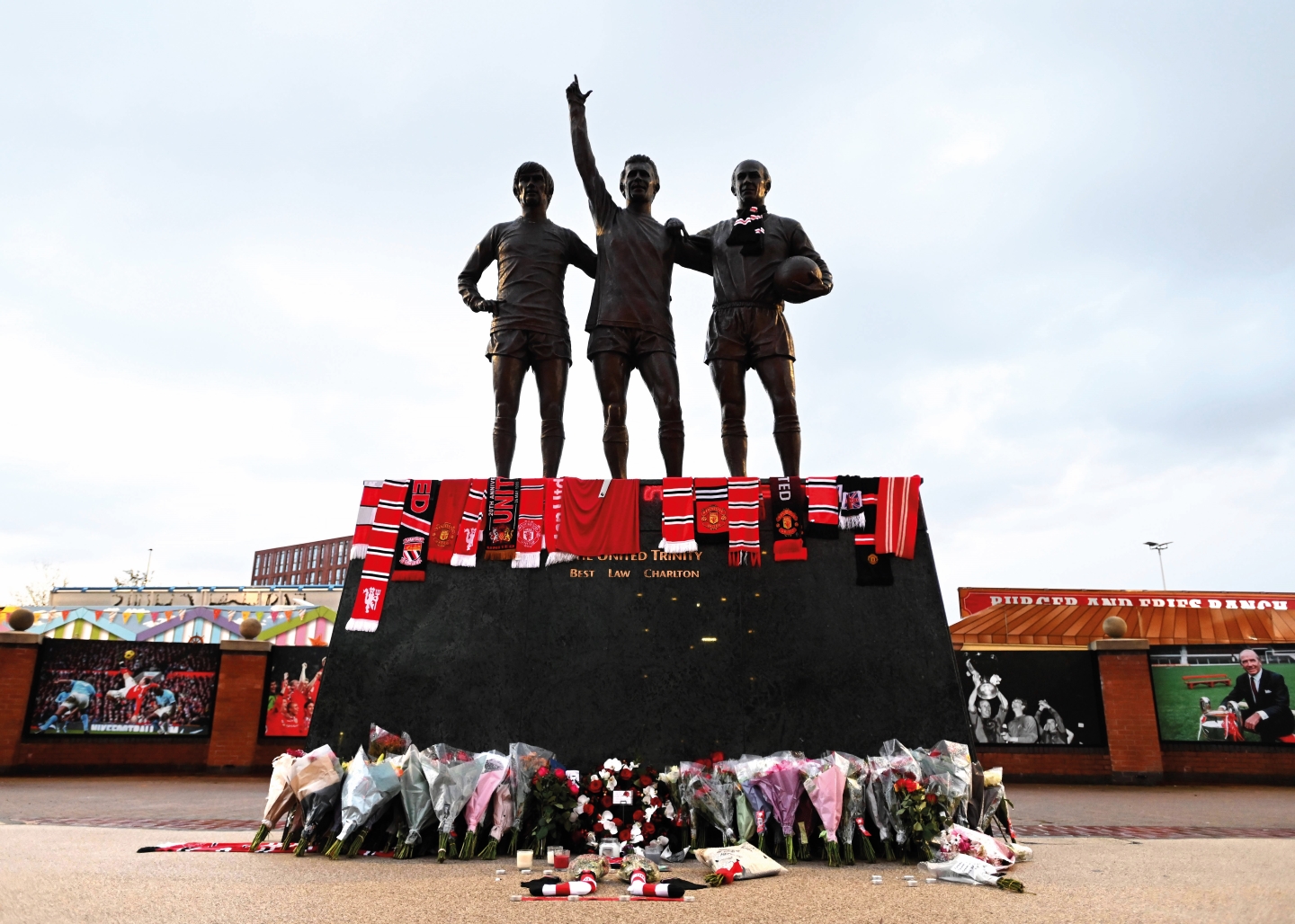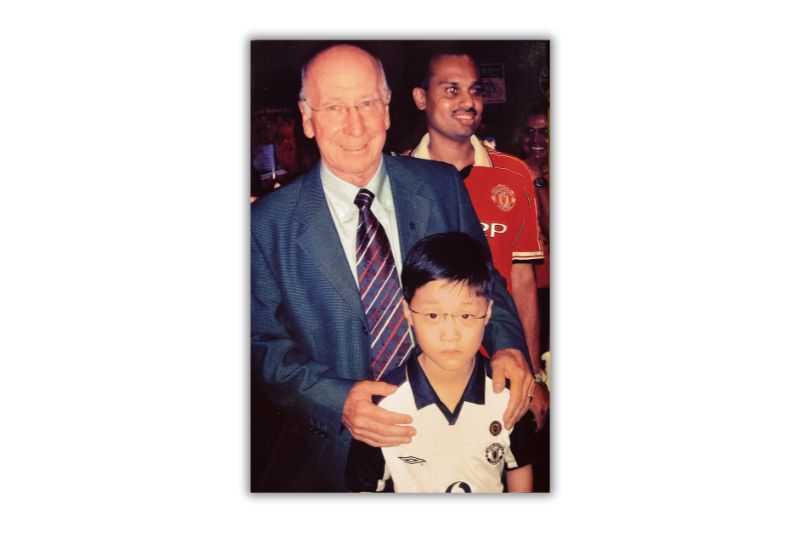
Fans left flowers and scarves at the United Trinity Statue after Sir Bobby’s passing (Photo: Reuters)
In the roaring 1960s of the English Football League, there was no trio deadlier than Englishman Bobby Charlton, Irishman George Best and Scotsman Denis Law of Manchester United. With three European Footballers of the Year (Ballon d’Or) as goalscorers on the same side, United was a dream attacking team.
It was a team that did not have to worry about a weak defence, as United’s attacking format, including the trio, would score more than it conceded. The slick dribbling skills of Best from the wing could break any defence; the flamboyant and acrobatic talent of Law in the penalty box could outfox any centre backs, while Charlton would whizz the ball past many goalkeepers with his unstoppable long-distance shots.
The trio enjoyed so much worldwide adoration that United erected a statue of them outside Old Trafford, their beloved football stadium. Aptly named the United Trinity Statue, it was a scene of sadness recently as fans flocked to the spot with flowers and scarves after learning that Charlton had passed away at the age of 86 due to complications from dementia on Oct 21.
Best, the original bad boy of British football, died on Nov 25, 2005, after a long battle with an illness linked to alcoholism. Law, the surviving member of the Trinity, has not been seen in public since he announced in August 2021 that he, too, had been diagnosed with dementia.
books_800px.jpg

Sir Bobby was a Red through and through but to the world of football, he was the ultimate gentleman: on and off the field, during his footballing career, and after he retired and served as director and football ambassador for Manchester United. He was admired for his sportsmanship par excellence.
Many accolades have been written and spoken about him but to me, those from the following four footballing personalities on the back of his two colossal autobiographies, Sir Bobby Charlton My Manchester United Years and My England Years, aptly described the man.
Sir Matt Busby, the manager who discovered him as part of the famous Manchester United youth team in the 1950s known as the Busby Babes, and who along with Charlton survived the Munich air crash of 1958 that killed eight of the club’s first-team players including Duncan Edwards, Roger Byrne and Tommy Taylor — a force many football experts predicted would have dominated English and European footballer for a long time — had this to say: “The greatest thing for a manager is to trust the talent. Bobby Charlton never betrayed that trust. It was a privilege to have him play for you.”
Ten years after Munich, Charlton captained United to a 4-1 victory over Benfica to clinch the European Cup for Sir Matt to achieve his Holy Grail.
To Sir Alf Ramsey, the manager who led England to World Cup victory in 1966, and under whom Charlton played most of his 106 England caps, he was, “One of the greatest players I have seen. He wasn’t just a great goalscorer, with a blistering shot using either foot, Bobby was a player who could do his share of hard work (too).”
Pele, who shared the international limelight with Charlton in the 1960s — and whom I still consider the greatest football talent in the world by virtue of his winning the World Cup three times and the first one at the age of 17 — said: “Bobby Charlton is more than one of the greatest players. He is the spirit of football. He is one of those who make you proud to be associated with the game.”
Sir Alex Ferguson, the most successful manager of Manchester United and in the history of British and European football, who has known Charlton well as director of the club, described his career as “miraculous”.
What more can I add to these accolades except to reminisce about Charlton’s great Manchester United team of the mid-1950s and 1960s and watch his goals, which I believe will be played over and over again on many platforms, including MUTV.
Of the Trinity, Charlton might not be as stylish and as flamboyant as Best and Law, but for the younger generation of fans, just look at his goals, especially the blistering long-range shots that he scored for Manchester United and England. One cannot help but admire them. Thanks for the memories, Sir Bobby.
Azam Aris is editor emeritus at The Edge Malaysia.
This article first appeared on Oct 30, 2023 in The Edge Malaysia.


